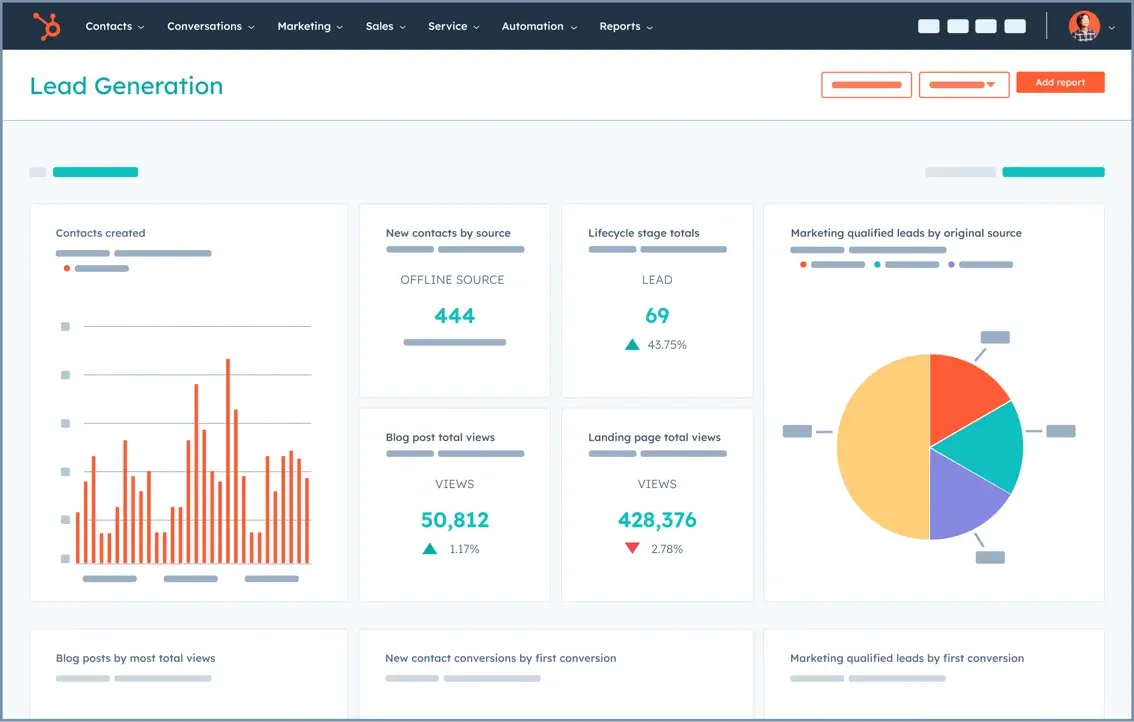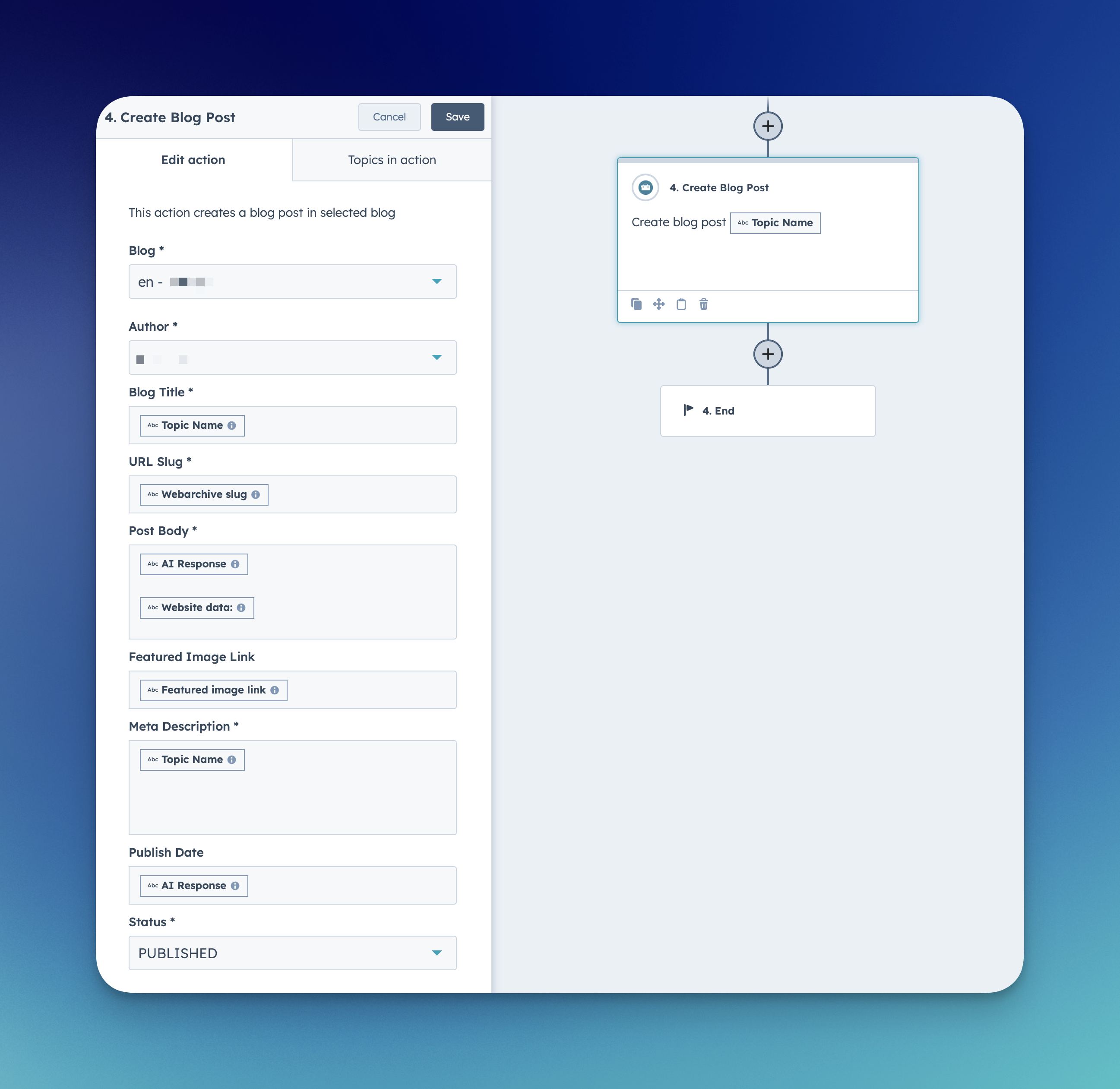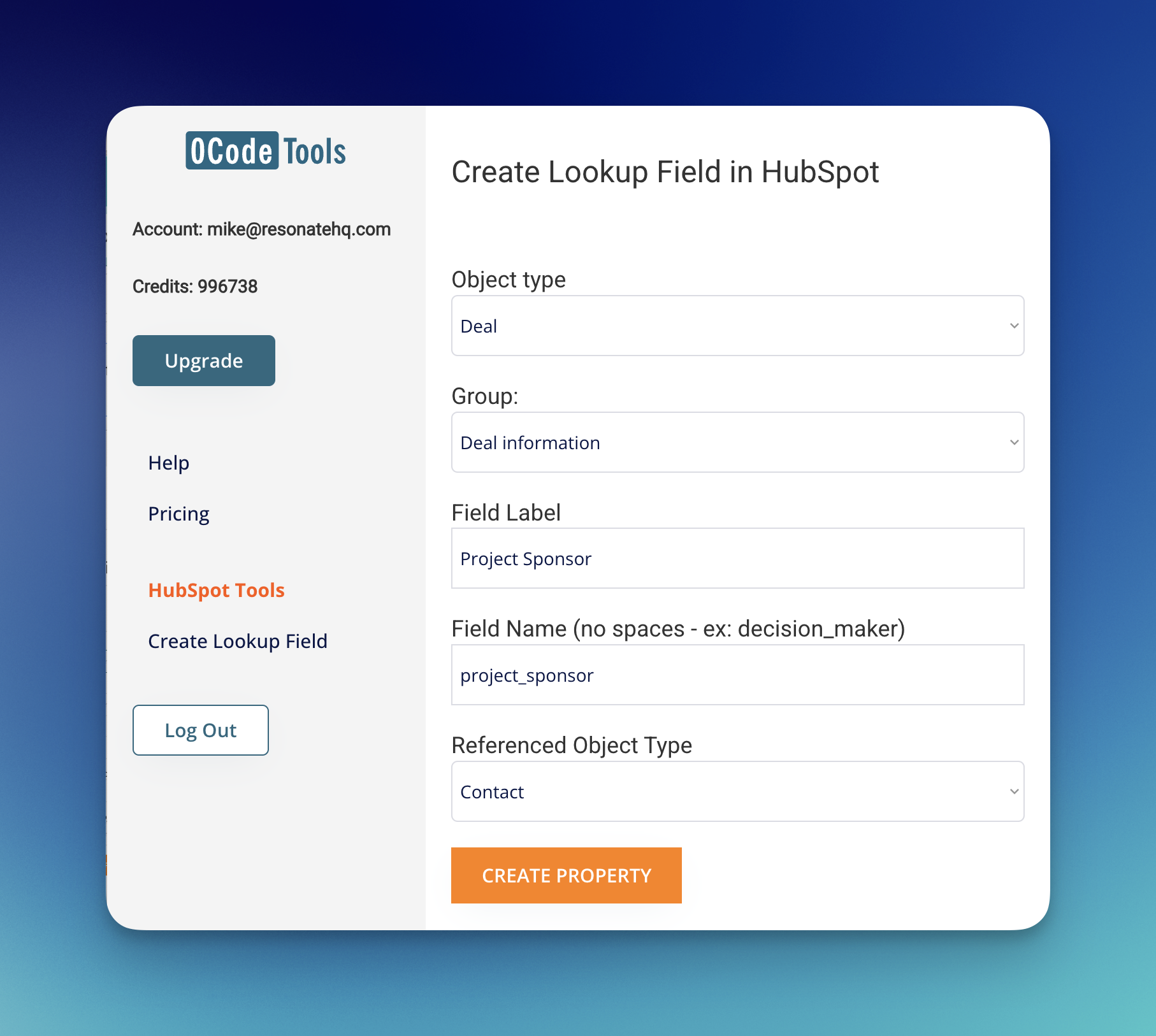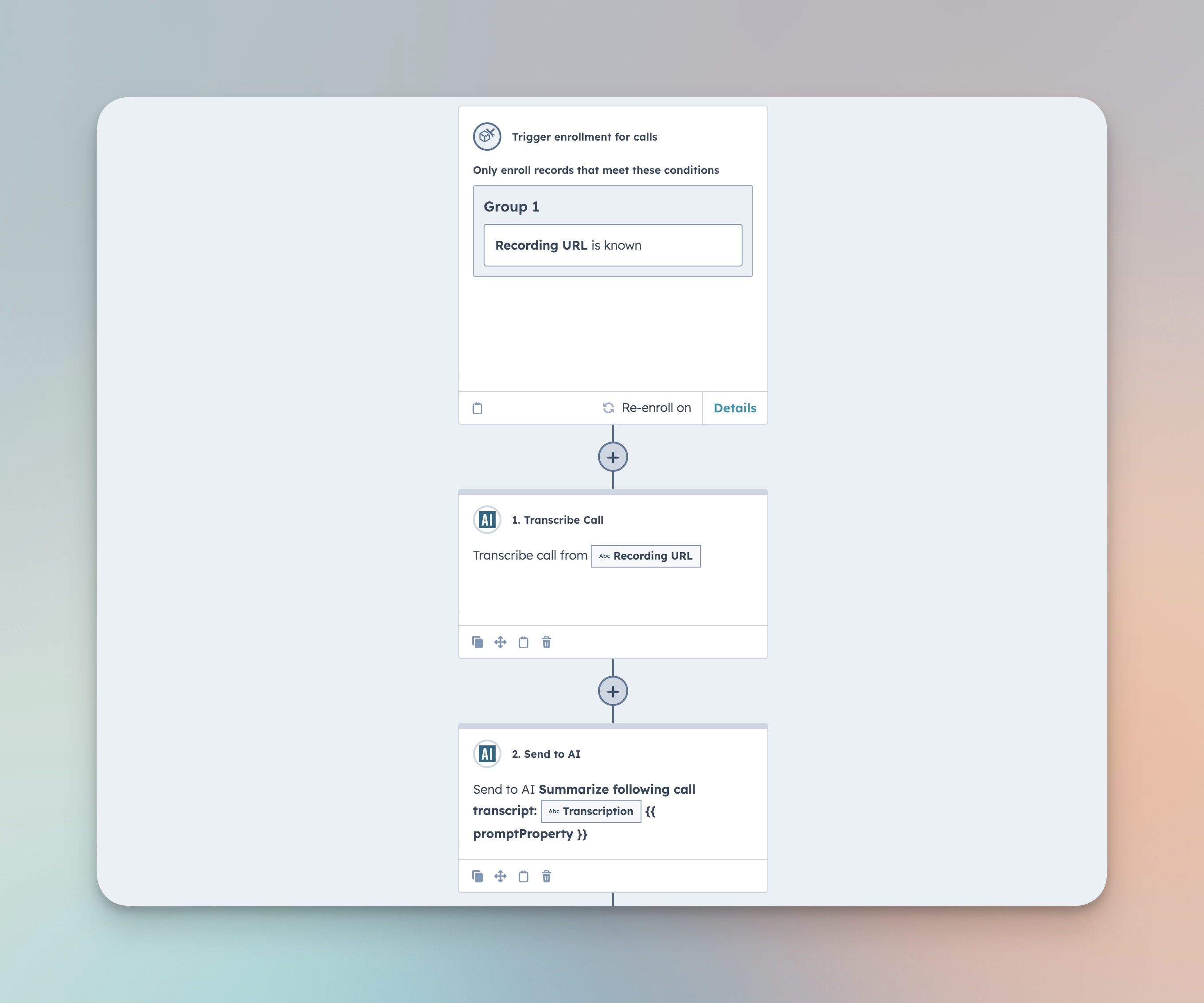
This article compares HubSpot and Salesforce, two leading cloud-based CRM platforms. It examines their target markets (HubSpot focusing on SMBs, Salesforce on larger enterprises), features (HubSpot emphasizing ease of use and integrated marketing tools, Salesforce offering extensive customization and advanced analytics), pricing models, and recent AI advancements. The article analyzes customer reviews and 2024 updates for both platforms, ultimately advising businesses to choose the platform best suited to their size, budget, and specific needs. Both platforms are highlighted as powerful tools for improving customer relationships and driving growth, but with distinct strengths and weaknesses.

Two of the leading cloud CRM platforms right now are HubSpot and Salesforce, both offering a wide range of features to help businesses manage their customer interactions, sales, and marketing efforts. In this article we tried to make a comprehensive comparison of HubSpot and Salesforce, examining their target markets, features, pricing, customer reviews, recent updates, and overall strengths and weaknesses.
The rise of AI and AI agents is transforming the CRM landscape. 2025 is poised to be the year of agents, and HubSpot is well-positioned to capitalize on this trend. Its AI Studio, developed by Resonate, provides a powerful platform for building AI agents that can automate tasks, personalize customer interactions, and improve overall efficiency. HubSpot co-founder Dharmesh Shah is also developing agent.ai, a platform specifically designed for AI agents, further solidifying HubSpot's commitment to this emerging technology.
While the standard for tech companies before 2022 was often a combination of HubSpot Marketing Hub and Salesforce Sales Cloud, this trend is shifting. Increasingly, mid-size companies are moving to HubSpot for both sales and marketing, thanks to the introduction of numerous enterprise-grade features in recent years. This shift reflects HubSpot's growing capabilities and its ability to meet the needs of larger and more demanding businesses.
HubSpot and Salesforce cater to different target markets, although there is some overlap.
HubSpot primarily targets small and medium-sized businesses (SMBs) that are new to CRMs or looking for an all-in-one platform with a strong focus on inbound marketing. Its user-friendly interface and affordable pricing make it a good option for businesses with limited resources. HubSpot's marketing tools are particularly well-suited for businesses focused on lead generation and online engagement. HubSpot is particularly focused on reaching millennials and Gen X buyers.
HubSpot can also help address the challenges faced by revenue leaders, such as:
HubSpot has seen impressive growth, with revenue increasing from $883.03 million in 2020 to $2.6 billion in 2024, and its customer base expanding to over 216,000 customers. This indicates a strong market position and high customer satisfaction. Notably, HubSpot has become the de facto standard for marketing in tech companies, with rapidly growing companies like OpenAI utilizing its platform.
Salesforce is a more versatile platform that caters to businesses of all sizes, but it is particularly popular among large enterprises with complex sales processes and extensive customization needs. Salesforce's wide range of features and integrations makes it a good fit for businesses with sophisticated CRM requirements.
Salesforce has a dominant market share in the CRM industry, holding 21.8%, which is more than its four leading competitors combined. In the 2024 fiscal year, Salesforce generated $34.86 billion in revenue. Salesforce India alone surpassed $1 billion in revenue, experiencing 36% growth in the fiscal year ending March 31, 2024.
Both HubSpot and Salesforce offer a comprehensive suite of features, but they differ in their approach and focus. Both platforms offer AI tools, but HubSpot's AI is considered simpler and better integrated into its platform.
HubSpot is known for its user-friendly interface and integrated platform that combines marketing, sales, service, operations, and CMS tools. HubSpot has more well-rounded marketing features for more of its plans. Some of its key features include:
Salesforce is a highly customizable and scalable platform that caters to businesses of all sizes, with a focus on enterprise-level solutions. Salesforce has an edge when it comes to reporting and customization. Its sales reporting and forecasting features are more readily built into its platform. Salesforce's extensive workflow and automation capabilities are flexible and precise, allowing for better management of teams and marketing campaign structures. Salesforce Einstein AI offers advanced analytics capabilities, such as predictive lead scoring, opportunity insights, and AI-powered forecasting. Its key features include:
Salesforce's modular approach allows businesses to choose the specific functionalities they need and customize them to their requirements.
HubSpot and Salesforce have different pricing models, reflecting their target markets and feature sets.
HubSpot offers foundational tools for free for up to 2 users. Paid plans are available for each Hub, with pricing based on the number of users and marketing contacts. As of March 5, 2024, HubSpot moved to a seats-based pricing model for all Hubs and subscription tiers. This change removed seat minimums for Sales Hub and Service Hub and introduced the Core Seat and View-Only Seat.
|
Plan |
Description |
Pricing |
|---|---|---|
|
Free Tools |
Foundational tools to get you started |
US$0 |
|
Starter Customer Platform |
Essential marketing, sales, service, content, and operations software |
Starts at US$15/mo/seat |
|
Professional Customer Platform |
Comprehensive marketing, sales, customer service, content, and operations software |
Starts at US$1,170/mo (5 seats, extra at US$45/mo) |
|
Enterprise Customer Platform |
Our most powerful marketing, sales, customer service, content, and operations software |
Starts at US$4,300/mo (7 seats, extra at US$75/mo) |
While Salesforce does offer per-user, per-month subscriptions, it primarily uses annual billing for its Sales Cloud. It offers different editions for each cloud, with varying features and price points.
|
Solution |
Entry price |
Rate for 2 users (light usage) |
Rate for 5 users (relatively advanced use) |
Rate for 50 users |
|---|---|---|---|---|
|
Salesforce |
$25/user/month (Starter plan) |
$50/month on Starter plan |
$4,800/year (Professional plan) |
$99,000/year on Enterprise plan |
|
HubSpot |
Free plan available |
$20/month on Starter plan |
$5,400/year (Professional plan) |
$90,000/year on Enterprise plan |
The costs for Service Cloud are the same as for Sales Cloud. Salesforce can get expensive quickly, especially with add-ons and customization.
Both HubSpot and Salesforce have a wealth of customer reviews and case studies available, showcasing their strengths and weaknesses from a user perspective.
HubSpot is consistently praised for its user-friendly interface and ease of use. Users appreciate the comprehensive feature set and the availability of a free CRM. HubSpot's free plan is considered "legit" by users, offering a wide range of features and the ability to add 1 million contacts. However, some users find the pricing to be expensive, especially for larger businesses or those requiring advanced features.
HubSpot provides a variety of case studies showcasing how businesses are using its platform to achieve their goals. Some examples include:
Salesforce is recognized for its powerful features, customization options, and extensive integrations. Users appreciate its scalability and ability to handle complex sales processes. Salesforce's reporting capabilities are highly regarded, with users describing them as "AMAZING and incredibly comprehensive." However, some users find its interface to be complex and overwhelming, and its pricing can be high, especially with add-ons. Some users have also reported challenges with customer support.
Salesforce also has a number of case studies available, highlighting its impact across various industries. Some examples include:
Both HubSpot and Salesforce have released major updates in 2024, enhancing their platforms and adding new features.
Some of the notable updates to HubSpot in 2024 include:
Some of the major updates to Salesforce in 2024 include:
Both HubSpot and Salesforce are heavily investing in AI to enhance their platforms and provide more intelligent solutions for their customers. Here's a closer look at their recent AI developments:
HubSpot has consolidated its AI tools under the brand name Breeze. This includes existing tools like Content Assistant and ChatSpot.ai, as well as new features like Breeze Intelligence. Breeze Intelligence offers data enrichment and buyer intent solutions, providing valuable insights to sales and marketing teams.
HubSpot is also leveraging AI to improve various aspects of its platform, including:
HubSpot co-founder Dharmesh Shah is developing agent.ai, a platform specifically designed for building and deploying AI agents. This platform aims to further democratize access to AI and empower businesses to create intelligent agents that can automate tasks and improve customer interactions.
Salesforce has introduced Agentforce, a suite of autonomous AI agents designed to augment employees and handle tasks across various departments, including service, sales, marketing, and commerce. Agentforce leverages the Agentforce Atlas Reasoning Engine to analyze data, make decisions, and complete tasks autonomously.
Key features of Agentforce include:
Salesforce also continues to enhance its Einstein AI platform, which offers features like:
Both HubSpot and Salesforce have their own strengths and weaknesses, which can influence a business's decision.
Strengths:
Weaknesses:
Strengths:
Weaknesses:
The choice between HubSpot and Salesforce depends on the specific needs and priorities of a business. Here's a quick comparison of the two platforms:
|
Feature |
HubSpot |
Salesforce |
|---|---|---|
|
Sales reporting & forecasting |
Advanced sales reporting and forecasting, but requires an upgraded paid plan |
Highly advanced sales reporting and forecasting, with basic reporting available in baseline plans |
|
Marketing features |
Extensive marketing features available with the free and Starter plans |
Extensive marketing automation features available in separate marketing packages |
|
Ease of use |
Strong onboarding with step-by-step guidance; more integrated dashboard and navigation |
Strong onboarding with a demo-like account; layout is initially less intuitive |
|
Customization |
Customizable workflows and automation, including JavaScript and Python coding for workflows |
Highly customizable (including coding capabilities) |
|
Pricing |
Extensive free plan, including a free CRM and baseline features; plans include specific product bundles; pricing packages can be customized and scaled by user: Free, Starter ($20/month), Professional ($500/month), Enterprise ($1,500/month) |
Charges per user per month; many features come as standalone apps accessible by purchase; plans are highly segmented; |
HubSpot is a better choice for:
HubSpot offers a superior interface and better-rounded marketing and sales tools at an accessible price point. It's easier to use and has better sales features.
Salesforce is a better choice for:
Salesforce is more suitable for larger enterprises due to its extensive customization and advanced reporting capabilities. It offers better customer service features and analytics. Salesforce is the best option for large enterprise companies
When it comes to service needs, Salesforce Service Cloud heavily emphasizes AI to personalize and optimize customer service interactions, whereas HubSpot Service Hub focuses more on ease of use and straightforward CRM integration
It's important to consider the fundamental difference in their approach: HubSpot offers an all-in-one platform, while Salesforce relies on a modular ecosystem where multiple tools must be integrated to build a complete solution
Both HubSpot and Salesforce are powerful CRM platforms that can help businesses improve their customer relationships and drive growth. HubSpot excels in user-friendliness, integrated features, and inbound marketing, making it ideal for SMBs and businesses new to CRMs. Salesforce, on the other hand, offers extensive customization, advanced reporting, and a vast ecosystem of integrations, making it a strong choice for large enterprises with complex needs.
Ultimately, the best platform depends on your specific requirements, budget, and long-term goals. By carefully considering the information presented in this comparison, businesses can make an informed decision and choose the CRM platform that best aligns with their needs and sets them up for success in 2024 and beyond.

We have just introduced a new workflow action for automatically creating and publishing blog posts in Hu...

If you’ve ever worked with Salesforce, you know how powerful “lookup fields” can be for connecting recor...

Overview The “Transcribe Call” workflow action in AI Studio for HubSpot automatically transcribes record...